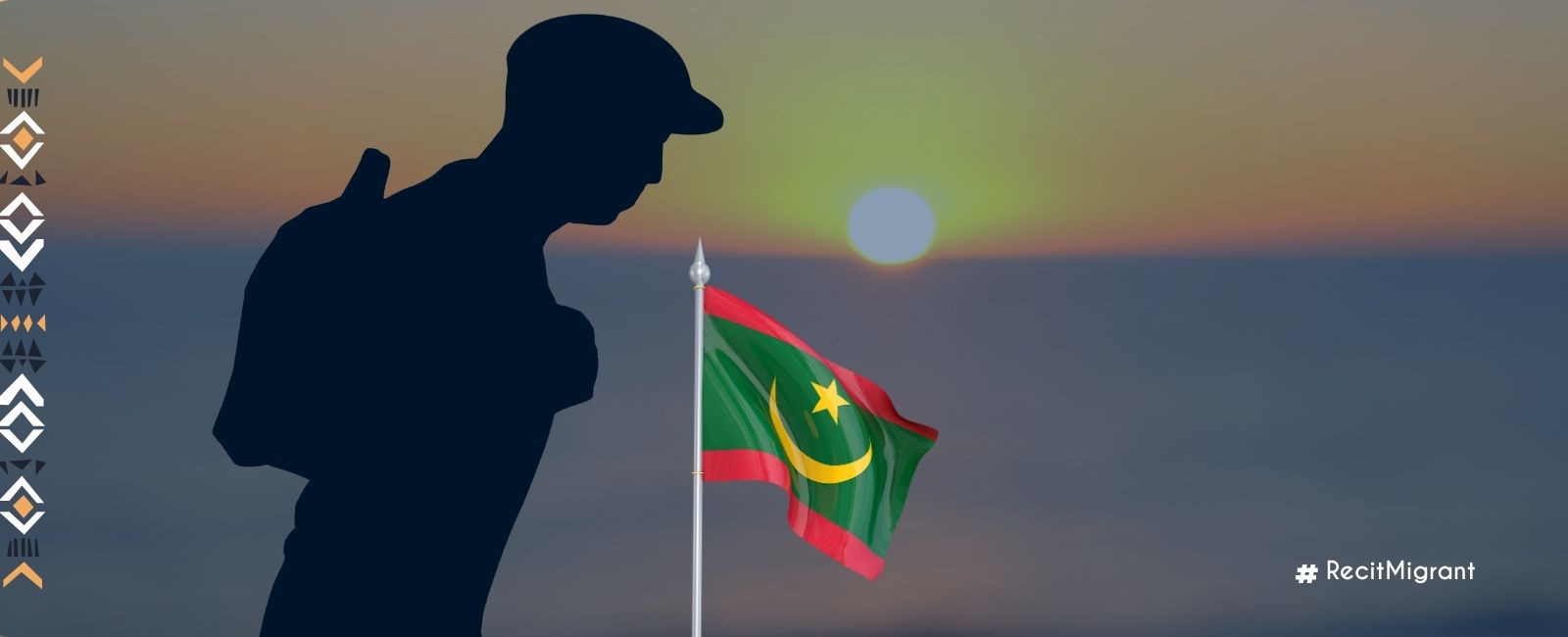

The deportations of “irregular” migrants of five (5) African nationalities reported in Mauritania have sparked reactions in many West African countries. This wave of arrests and expulsions, which is said to have begun on 2 March, aims to send most migrants to the border posts through which they entered. It is important to note that the country serves as a departure point for attempts to cross into Europe along African migration routes.
Mauritanian authorities respond
On 8 March, the public became aware of the situation when videos published on social media showed female migrants being dispersed by Mauritanian police using tear gas after they attacked a police station located a few kilometres from the Malian border in Gogui (a rural Malian commune). Those about to be expelled to Mali reportedly set fire to the police station, according to a security and administrative source.
At a press conference, the spokesperson for the Mauritanian government, Houssein Ould Meddou, justified the expulsions by citing the fight against “illegal immigration and the dismantling of migrant trafficking networks.” According to him, it is also about protecting populations from the dangers of irregular migration. However, he did not specify the number of people affected by these expulsions or the conditions under which they were expelled.
Ould Meddou was joined in this attempt to explain Mauritania’s migration policy by the Minister of Foreign Affairs, Mohamed Salem Ould Merzoug, who also justified the decision by the need to “preserve national security.” When questioned by Radio France Internationale (RFI) about the conditions under which the migrants were arrested and expelled—conditions which humanitarian organisations claimed involved mistreatment by Mauritanian law enforcement—the minister deflected the question and reassured that everything took place in “respect of all conventions that protect human rights, as ratified by Mauritania.”
The minister also insisted that Mauritanian security forces had received specific training on respecting fundamental rights, provided by the United Nations High Commissioner for Human Rights (OHCHR) and the International Organisation for Migration (IOM). It should be noted that the migrant population is estimated at 1.2 million in a country with barely 4.5 million inhabitants.
Political reactions in West Africa
Senegalese Foreign Affairs Minister has a different interpretation of the facts. During a plenary session in the National Assembly, Yacine Fall, was questioned on the subject by several deputies. While acknowledging that each country has its laws, she expressed “regret over the conditions of arrest and expulsion of Senegalese nationals.” According to her, they were subjected to inhumane treatment during their arrest and repatriation. She assured that discussions with the Mauritanian authorities are ongoing and that improvements are expected by the end of March. She added thatMauritania promised to provide Senegal with the procedures for obtaining residence permits and residence cards for its nationals in the land of the Mourabitounes. The Senegalese community is recorded at 300,000 just in Nouakchott, the capital of the country.
Still in Senegal, deputy and member of the parliamentary majority, Guy Marius Sagna, echoed the “violations of human rights and xenophobic campaigns against Senegalese, Malian, Ivorian and Guinean nationals…” To enlighten his fellow citizens, he proposed during a plenary session, the creation of an information mission in Mauritania on the situation.
Mali, through Boulaye Keita, technical advisor in charge of migration issues at the Ministry of Malians Abroad, said that everything was conducted in accordance with existing administrative procedures. When questioned by the Turkish news agency Anadolu, he stated that 528 Malian migrants had been expelled and absolved the Mauritanian authorities of accusations of mistreatment and torture against migrants.
Although their nationals were mentioned as part of those expelled, the Ivorian and Guinean authorities have yet to respond to this humanitarian situation.
As for the honorary consul of Senegal in Nouadhibou, Boughourbal Moulaye Abasse, he is attempting to provide assistance and advice to Senegalese migrants. He reassured in an interview with the Senegalese newspaper “ Le Quotidien, that “the Senegalese community in Mauritania is doing well, for those who have residence permits. However, those who lack any official documents are facing systematic expulsions.”
A week after she announced in the National Assembly, Senegal’s Minister of Foreign Affairs, Yacine Fall, commenced a visit to Mauritania on 17 March.
Human rights defenders outraged
Senegalese deputy Guy Marius Sagna is joined in his outrage by human rights organisations regarding the conditions of these expulsions to the borders. When questioned by Agence France Presse, Kory Sneïba, a member of the Mauritanian association SOS Esclaves, reminded the Mauritanian authorities that “migrants should not be arrested under inhumane conditions.” Consequently, the association demands that this process respect human rights, he concluded.
In a press release, the African Meeting for the Defence of Human Rights (RADDHO) also expressed its indignation. The continental organisation, which holds special status at the UN ECOSOC and an observer role at the African Commission on Human and Peoples’ Rights (ACHPR), denounces serious violations of dignity and human rights.
The Mauritanian Association for Human Rights (AMDH) expressed its “ deep indignation and condemns in the strongest terms, the mass round-ups and arbitrary arrests carried out in recent days by the Mauritanian authorities against migrants.” According to this association defending migrants’ rights, these actions, “executed with brutality and contempt for fundamental rights,” constitute a serious violation of human dignity and the international and regional conventions ratified by Mauritania. This includes the International Convention on the Protection of the Rights of All Migrant Workers and Members of Their Families, adopted by the UN, the African Charter on Human and Peoples’ Rights, the Maputo Protocol, and the Protocol on the Free Movement of Persons and the Right of Residence and Establishment of the African Union.
They also denounce “the responsibility of the European Union and countries that have signed agreements with Mauritania to combat illegal immigration.” According to them , these states bear part of the responsibility for the human rights violations committed in Mauritania by externalising migration management. It should be noted that on 7 March 2024, Mauritania and the European Union (EU) signed a memorandum to combat illegal immigration with a fund of over 200 million euros.
Furthermore, an investigation by Le Monde, Lighthouse Reports, and seven other international media has shown that Mauritania is not the only African country to have such partnerships with the EU. The funds from the European flagship institution allow several Maghreb countries to expel migrants into the desert “at the cost of human rights violations and with the support of European resources.”


